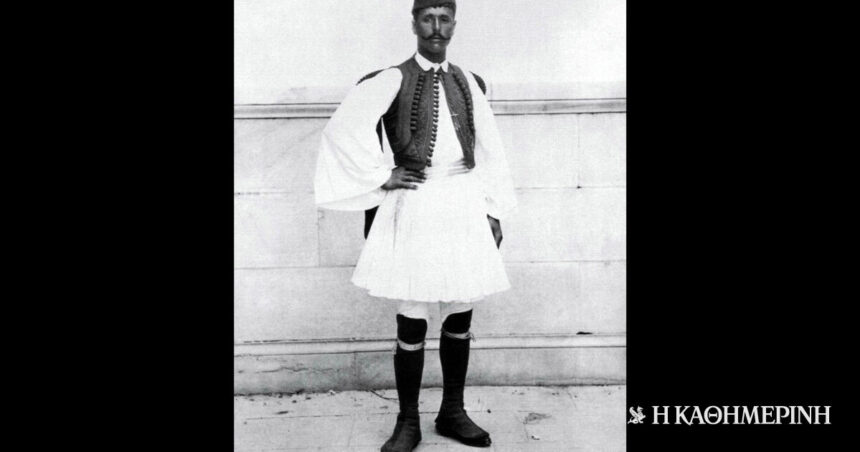Spyros Louis, who has associated his name with the first modern Olympic Games, held in Athens in 1896, was born on January 12, 1872 in Marousi, Attica. As he came from a poor farming family – his father was a waterman – from a very young age Spyros was forced to help himself as much as he could. The help he provided to his father resulted in him developing a special endurance, which was also recognized during his military service. The greatest recognition, however, would come in the 1896 Olympics and the then-innovative event of the Marathon.
In 1894, when preparations for the games were beginning, Michel Breal proposed a new event, inspired by the messenger Pheidippides, who had traveled the Marathon-Athens distance to announce the victory of the Athenians over the Persians at the Battle of Marathon.
In Greece, the new competition met with an enthusiastic reception, as demonstrated by the organization of preliminary competitions for those who wanted to participate. The organizer of the preliminary games was his colonel George Papadiamantopoulos, who had been Louis’ commander during his military service. Thanks to him, the 24-year-old Louis participated, taking fifth place. In the end, it would be marginally accepted with the intervention of the organizer due to the adverse weather conditions that prevailed.
A total of 13 Greek and 4 foreign athletes participated in the first official race of the Marathon. Initially the Frenchman Alben Lermisio was in the lead, but he collapsed after the 32nd kilometer. Australia’s Edwin Flack was then leading the race, but Louis would soon be closing in on him, despite the fact that at Pikermy he was said to have stopped for a glass of wine before resuming the race. In the end, the one who would be the first to enter the Panathenaic Stadium, where 80,000 spectators were gathered, among them Crown Prince Constantine together with Prince George, was Louis. He had run the Marathon in almost 3 hours. After the race, there were rumors that he had “stolen” the race, running part of the way in a cart, which were never confirmed.
Another rumor that circulated was about the “driving force” behind his decision to run the Marathon. Many have spoken about the eyes of his own Beautiful Helen, Eleni Kontou, Aspasia Terzopoulou’s soulmate. Young Spyros, it is said, poor and illiterate as he was, had no hope of marrying Helen. A victory at the Olympics, however, could change her mind and finally give the much-desired consent to their union.
Whether it was for this reason or he was actually convinced by his former commander, what matters is that he managed to both become an Olympian and marry his beloved Helen. After this triumph, he never ran again, preferring to spend a quiet life in Maroussi, where he worked as a farmer, gardener, waterman and later as a local policeman. The only gift he accepted was the one he himself seems to have asked for: a donkey to help him carry the water.
In 1926, he would come back into the limelight when he was accused of forging military documents; a charge that landed him in prison for just over a year. But he was eventually acquitted. He would make his last public appearance ten years later, when Hitler invited him to the Berlin Olympics as a guest of honor. The elderly Spyros Louis, dressed in the traditional dress, gave him an olive branch – a symbol of peace. He would die four years later, in March 1940, remaining to this day an athlete-legend.
Column editor: Myrto Katsigera, Vassilis Minakakis, Antigoni-Despina Poimenidou, Athanasios Syroplakis




